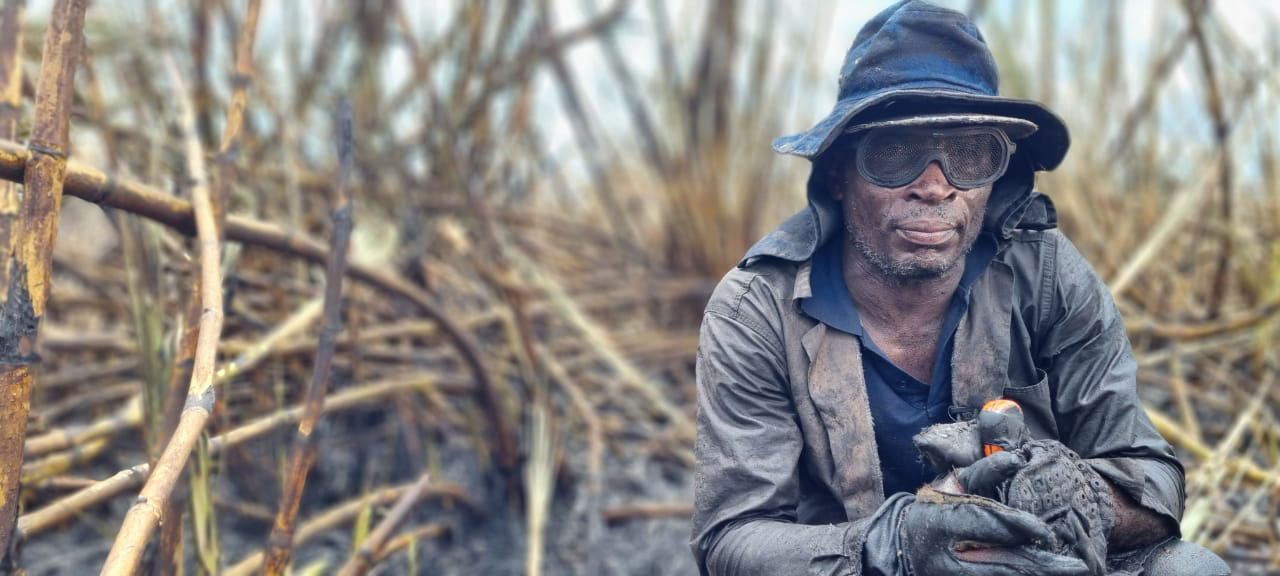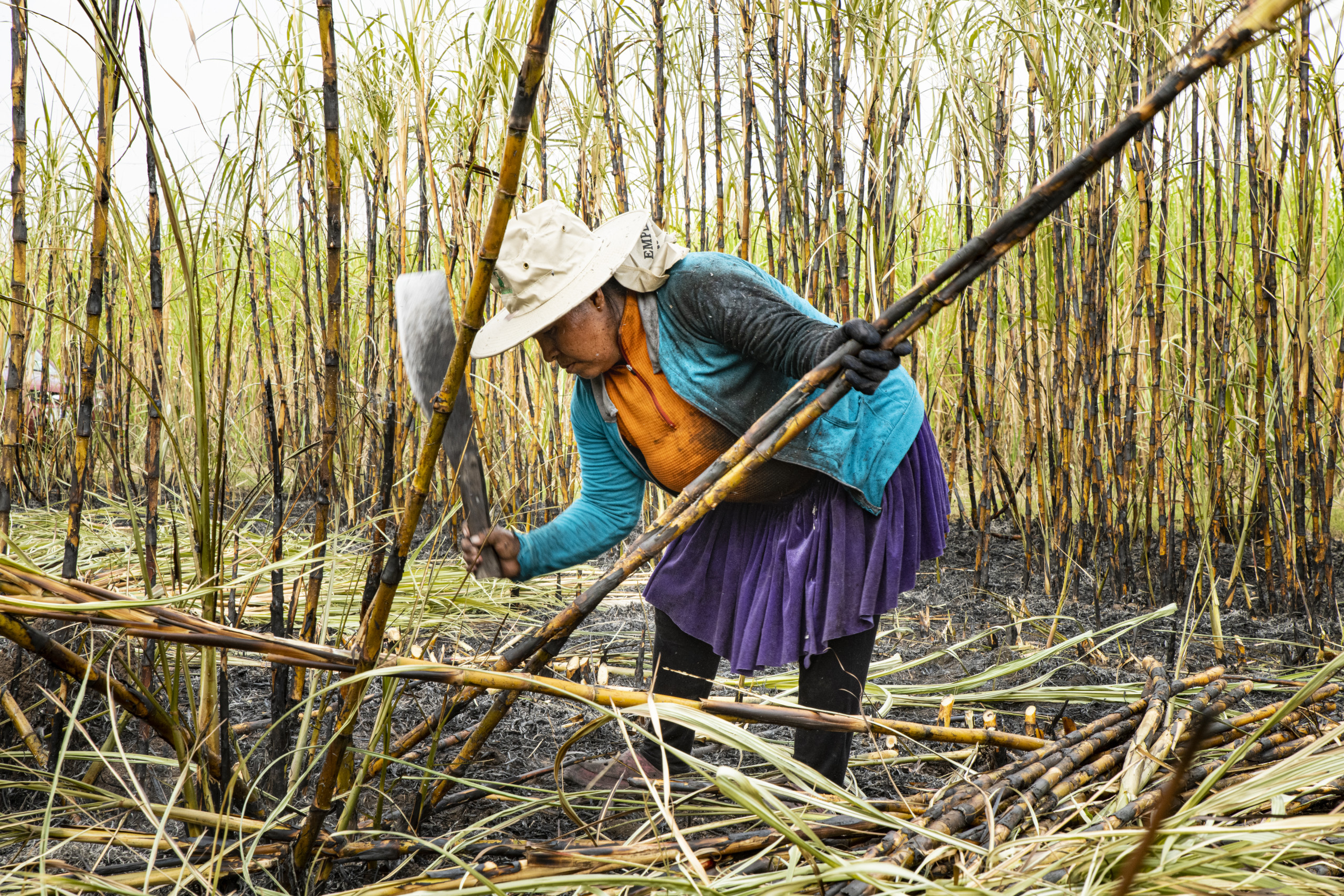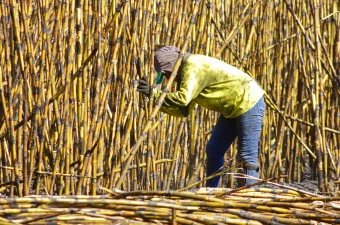The story behind the sugar industry
In our history of slavery, sugar cane plantations played a major role. 2023 has been the commemoration year of the history of slavery in the Netherlands, in which we commemorate that slavery was abolished 150 years ago. But to what extent have we put this slavery past behind us?
To this day, many sugarcane plantations in the tropics and subtropics still cut sugarcane by hand. These plantations play an important role for the economy and employment opportunities. Through investors and international companies, we are still closely involved in the sugar cane production chain.
Sugar cane generated huge profits in Europe and for the rising elites in America from the 17th century onwards. Sugar consumption grew explosively. Sugar came within reach of large sections of the population for the first time. However, this was only possible thanks to the large-scale use of slaves in sugar-producing countries in Latin America.
Key role
The Netherlands played a key role, above all, because of our part in the transport of 600,000 slaves, 300,000 of them to Latin America. The Netherlands has apologised for this historical slavery. Today, Dutch companies and investors in the sugar sector continue to make good money. However, abuses have also continued.
For people working in the sugarcane fields, little has changed. Although in some countries the harvest is partly mechanised, sugar cane still thrives best when harvested manually. Globally, tens of thousands of people work at harvest time, cutting down the metre-high cane. In addition, many take care of planting and maintaining the crops.
That work in the fields happens in tropical heat. Temperatures of 40˚C or higher are no exception. Here climate change is causing higher extremes too. Moreover, cane is still often set on fire just before harvesting to scare away snakes and other pests.
Due to the extremely harsh working conditions, many sugarcane harvesters have kidney problems that sooner or later become fatal to them. It is the bitter reality in this sector.”

A working day in the sugarcane fields
Sugar cane cutter Marcelo from El Salvador starts his working day as early as 5 am. He heaves on until 7 pm. These long working days are dire necessities, as he has no permanent employment contract, but is paid per tonne of sugar cane cut. He cuts up to 16,000 kilos of sugarcane a day. He is paid $2.50 for every 1,000 kilos of sugarcane cut, which means $40 a day.
Felled sugarcane has to be processed quickly at the sugar factory. If it takes too long to be collected, then it is worthless. Then Marcelo gets paid less or nothing at all.
Having no employment contract also means he has no right to social security.
In case of an accident or illness, he has no access to healthcare. He can only go to local health posts for the poorest of the poor.
He also receives hardly any safety clothing to protect him from injuries or the scorching sun. Conditions are dire. The hard work under the merciless sun without decent breaks or adequate drinking water is a war of attrition. Many sugar cane harvesters in Marcelo's area have kidney problems that sooner or later become fatal to them. It is the bitter reality in this sector.
Exploitation structures
Although slavery has been officially abolished, exploitative structures persist in the sugar industry. Research by CNV Internationaal among sugar cane workers in seven countries in Latin America, shows that more than half of sugar workers do not earn enough to live on, with percentages as high as 80% in countries like Bolivia.
The hard work, which even involves children, leads to kidney failure and premature deaths among the workers. Over the past decade, 20.000 workers 20,000 workers have died from this in El Salvador and Nicaragua America alone.
European duty of care and responsibility
Amid this bitter reality, there is a glimmer of hope. The European Union took a decision on 14 December on new guidelines for international corporate social responsibility, (called CSDDD Corporate Social Due Diligence Directives in the jargon). These directives require companies exporting to Europe to have duty of care and responsibility for their entire production chain.
For the sugar industry, this means that companies must also bear responsibility for sugar cane harvesters in the field. But legislation alone is not enough. Companies must also live up to their duty of care, and not just tick off the rules of the law. To improve working conditions at the bottom of the chain, you also need a will and an awareness of the dire conditions.

Trade unions strengthen the voice of workers
CNV Internationaal is already working towards these European guidelines by helping trade unions monitor their own situation, both in terms of wagesand occupational health and safety.
In Latin America, CNV Internationaal is doing this together with anetwork of 16 unions from the sugar cane sector, from seven countries. It also gives a voice to sugar cane workers without permanent contracts who are often not organised. Precisely they are the most vulnerable because of the unhealthy working conditions. It is precisely among them that poverty is greatest.
In the bitter world that lurks behind sugar production, it shows that union work is desperately needed today to break the vicious circle of modern slavery. To make the hard reality of the people working in the sugar cane fields visible, and to make concrete agreements on improvement, on safe and healthy working conditions for a wage on which you can just live and that gives you a future.
Publication date 18 12 2023


